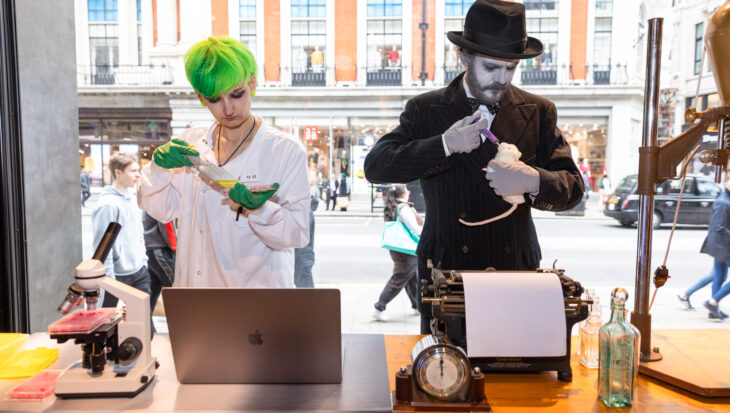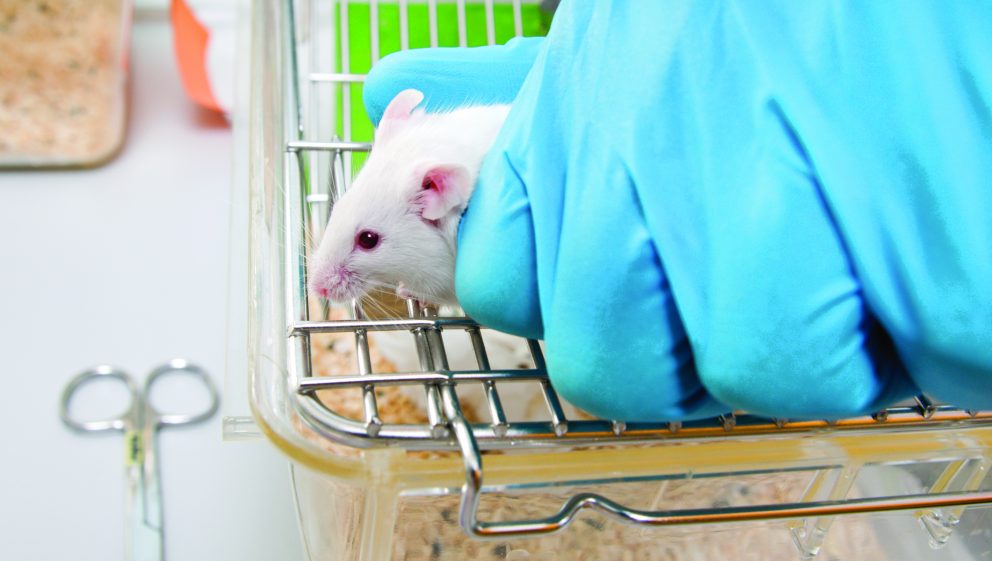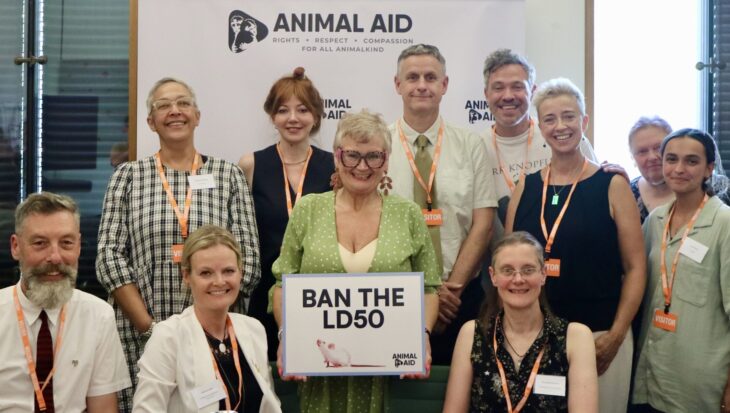The report describes 28 cases of ‘non-compliance’ with the law on animal experiments, or with conditions of licences to carry out ‘scientific procedures’ on animals. These cases actually represented 33 ‘separate incidents’ according to the Home Office. These included cases of unauthorised procedures, breeding more animals than authorised and failures to provide adequate food and water. In total, 100 animals either died, or were killed, as a result of these non-compliances.
Animal Aid has always been concerned about how animals suffer and die in laboratories. However, this concern is now heightened as we understand inspectors, due to COVID-19, are no longer routinely visiting laboratories to see how animals are being treated. We do not believe it is possible to monitor compliance remotely, which will lead to more suffering and neglect.
We know that animals suffer and die terrible deaths during experiments, but this suffering can be added to by instances of non-compliance. Opponents of animal experiments and those who voice their concern about how they are conducted are repeatedly assured that animal experiments are very highly regulated. However, this report, and those from earlier years, paint a picture of many defenceless animals being neglected and ignored with some of them paying with their lives – dying in terrible ways. Even the most basic provisions, of food and water, are denied to some animals.
- An animal was found dead in a transport box, in a clinical waste bin. They had likely died of heat exhaustion over the weekend. Apparently ‘Failure of unpacking procedures occurred.’
- A technician was disturbed while changing some bedding and they put four mice into an autoclave, where they died. Autoclaves sterilize items using super-heated steam.
- A group of 18 mice were given a nerve injection. Five of them then bit their toes. Worryingly, it is reported that one animal died, two caused damage to their toes and two had bleeding paws, then that ‘All five animals needed to be humanely killed’ (only four animals would have been killed since one had already died).
- Someone removed the entire fin from 50 fish, when they should have only removed a third. Some animals suffered damage to their deep muscle – all were killed when the error was discovered.
- A researcher force fed and collected semen from an ‘indeterminable’ number of dogs without having a licence to do so.
- At one laboratory, someone killed a mouse and removed the label and water from her cage. They did not check to see if she had any babies – two were found dead a week later. At the same place, five mice were left without food for four days, so they were killed. Then two more mice were left without food and water for four days – one died and the other was killed. The fourth incident meant that a food container was not filled with enough food and a mouse was found dead four days later.
- Two mice starved to death over 5 days, despite technicians supposedly conducting ‘twice daily checks’. Despite this neglect and incompetence, a ‘reprimand letter’ was sent and ‘progress reports required’.
- The water to 480 birds was twice turned off and not on again – these two incidences resulted in one bird dying and another being killed.
Quite rightly, if a member of the public failed to feed or water an animal, leading to the animal’s death, this could lead to their prosecution. Shockingly, those in laboratories, neglecting animals in the same way, typically receive a ‘letter of admonition’, retraining or perhaps having a licence revoked.
In addition to being scientifically flawed, experiments on live animals are morally unjustifiable. The pain and distress which animals suffer in laboratories and the myriad ways in which they are intentionally harmed, are truly the stuff of nightmares. Animals are surgically mutilated, have cancer injected into their bodies or may be force-fed toxic chemicals or exposed to warfare agents. Pain, neglect, extreme suffering and death have no place in modern, cutting-edge science. Instead of outdated and cruel animal experiments, researchers and funding bodies should instead invest their time and money in humane, cutting-edge alternatives.
Says Jessamy Korotoga, Animal Aid Campaign Manager:
‘Once again, the “annual report” makes shocking and chilling reading. No-one could fail to be disturbed when they imagine how these animals have suffered and died. It is wholly unacceptable that, once again, there are numerous cases where the most basic needs of animals are not being met, leading to immense suffering and death. When this does happen, the penalties are, quite frankly, pathetic. It is also important to remember that these cases are only the ones we know about – how many others are going undetected, especially at the moment when inspectors are not routinely visiting animal laboratories?’
Notes for Editors


